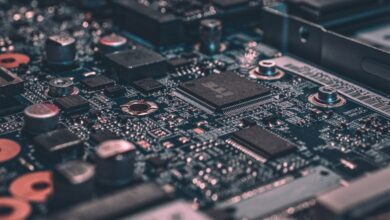AI-Powered Drug Discovery Accelerates Pharmaceutical Research

In the ever-evolving field of pharmaceutical research, scientists and researchers are constantly seeking innovative ways to expedite the discovery and development of new drugs. One groundbreaking approach that has gained significant momentum in recent years is the utilization of artificial intelligence (AI) to catalyze the drug discovery process. With its ability to analyze vast amounts of data and extract meaningful insights, AI holds tremendous promise for revolutionizing pharmaceutical research.
Harnessing the power of AI in drug discovery allows scientists to tackle some of the most complex challenges in the field. By leveraging machine learning algorithms, AI systems can swiftly identify patterns, predict outcomes, and generate hypotheses based on extensive data sets. This analytical prowess enables researchers to make more informed decisions about potential drug candidates, significantly reducing the time and resources required for traditional trial-and-error methods.
Moreover, AI-driven drug discovery offers remarkable speed and efficiency. Where it once took years to screen thousands of compounds for their effectiveness against specific diseases, AI algorithms can now perform this task in a fraction of the time. The accelerated pace empowers researchers to explore a broader range of potential drug candidates and increase the chances of finding effective treatments for various ailments.
Another notable advantage of AI in pharmaceutical research is its ability to unlock hidden insights from existing scientific literature. By combing through vast databases of published papers, AI algorithms can identify connections, uncover novel relationships, and highlight previously overlooked avenues for drug development. This not only enhances the knowledge base of researchers but also stimulates creativity and innovation within the scientific community.
Furthermore, AI-powered drug discovery has the potential to significantly reduce costs associated with pharmaceutical research. Traditional methods often involve extensive laboratory work, expensive equipment, and lengthy clinical trials. AI algorithms offer a cost-effective alternative by simulating experiments, predicting outcomes, and prioritizing the most promising drug candidates. The ability to narrow down the options early in the research process saves both time and money, enabling researchers to allocate resources more efficiently.
The integration of AI into drug discovery has emerged as a game-changer in the field of pharmaceutical research. Its ability to analyze vast amounts of data, accelerate the screening process, unlock hidden insights, and reduce costs makes it an invaluable tool for scientists. As AI continues to evolve and improve, we can anticipate even greater breakthroughs, leading to the development of innovative drugs that have the potential to transform countless lives. The future of pharmaceutical research is undoubtedly intertwined with the astonishing capabilities of AI.
Revolutionizing Medicine: AI-Powered Drug Discovery Breaks New Ground in Pharmaceutical Research
Imagine a world where diseases are no longer a source of fear and uncertainty. A world where groundbreaking treatments are readily available, tailored to individual patients’ needs. Thanks to the rapid advancements in technology, this vision is becoming a reality through AI-powered drug discovery. In this article, we will explore how artificial intelligence is transforming the landscape of pharmaceutical research, propelling us into a new era of medicine.


Traditional methods of drug discovery have long been a painstakingly slow and costly process. Researchers would spend countless hours screening vast libraries of chemical compounds, hoping to stumble upon a potential candidate. However, with the introduction of AI, this arduous journey has taken an unprecedented leap forward. By harnessing the power of machine learning, AI algorithms can analyze massive amounts of data and identify promising drug candidates in a fraction of the time it would take humans.
One of the key advantages of AI-powered drug discovery is its ability to sift through terabytes of scientific literature, patent databases, clinical trial data, and even molecular structures. This enables researchers to uncover hidden patterns and relationships that may have otherwise gone unnoticed. The AI algorithms can quickly identify potential drug targets, predict their efficacy, and even optimize molecular structures for enhanced potency.
Moreover, AI-powered drug discovery brings a level of personalization that was previously unimaginable. By analyzing vast genomic data sets, AI algorithms can identify specific genetic markers associated with diseases, allowing for the development of targeted therapies. This precision medicine approach holds immense promise, as it opens up opportunities for more effective treatments with fewer side effects.
The impact of AI-powered drug discovery is already being felt across the pharmaceutical industry. Companies and research institutions are partnering with tech giants and startups to leverage AI’s capabilities, embarking on collaborative efforts that push the boundaries of scientific innovation. From identifying novel drug candidates for complex diseases to streamlining clinical trials, AI is revolutionizing the entire drug discovery pipeline.
AI-powered drug discovery represents a paradigm shift in pharmaceutical research. By harnessing the power of artificial intelligence, researchers can accelerate the identification and development of life-saving treatments. As we continue to unlock the potential of AI, we move closer to a future where diseases are conquered, and patients receive personalized, effective therapies. The age of AI-powered medicine has arrived, promising a brighter and healthier world for all.
Breaking Barriers: How AI Speeds Up Drug Discovery in the Pharmaceutical Industry
In the fast-paced world of pharmaceuticals, AI is breaking barriers and revolutionizing the process of drug discovery. Imagine a world where life-saving medications can be developed and brought to market in record time, offering hope to millions of people suffering from various diseases. Thanks to the power of artificial intelligence, this vision is becoming a reality.
AI, or artificial intelligence, refers to the ability of machines to simulate human intelligence and perform tasks that typically require human cognition. When applied to the field of drug discovery, AI algorithms can analyze vast amounts of data and identify patterns and potential drug candidates with remarkable speed and precision.
Traditionally, the process of discovering new drugs has been a lengthy and expensive endeavor. Scientists would spend years meticulously studying biological systems, conducting experiments, and sifting through mountains of data. However, with AI, this process is being expedited, saving both time and resources.

One way AI speeds up drug discovery is through its ability to quickly process and analyze massive datasets. Pharmaceutical companies generate an enormous amount of data, ranging from genetic information to clinical trial results. By leveraging AI algorithms, scientists can sift through this data in a fraction of the time it would take a human, allowing them to identify promising leads and make informed decisions faster.
Additionally, AI can assist in predicting the efficacy and safety of potential drug candidates. By analyzing historical data and understanding the underlying mechanisms of diseases, AI algorithms can generate insights into how a drug might interact with the body and its effectiveness in treating specific conditions. This predictive capability allows researchers to prioritize the most promising candidates for further development, saving valuable time in the drug discovery pipeline.
Furthermore, AI-powered simulations and virtual models enable scientists to test the effects of a drug in silico before moving to costly and time-consuming animal and human trials. This not only accelerates the drug development process but also reduces the need for animal testing, making drug discovery more ethical and sustainable.

AI is a game-changer in the pharmaceutical industry, accelerating the drug discovery process by analyzing vast datasets, predicting drug efficacy, and enabling virtual testing. With AI’s assistance, scientists can overcome traditional barriers and bring life-saving medications to market more efficiently than ever before, ultimately improving patients’ lives around the world.
Unleashing the Power of Artificial Intelligence: Transforming Pharmaceutical Research through AI-Driven Drug Discovery
Imagine a world where diseases are no longer a mystery, where groundbreaking cures are discovered rapidly, and lives are saved effortlessly. This is precisely the awe-inspiring potential of artificial intelligence (AI) in revolutionizing pharmaceutical research. Through AI-driven drug discovery, scientists are harnessing the power of intelligent algorithms to expedite and enhance the process of developing life-changing medications.
In the realm of pharmaceutical research, time is of the essence. Traditional methods for discovering new drugs can be painstakingly slow, requiring years of trial and error. However, with AI as an indispensable ally, the landscape is dramatically shifting. By employing machine learning algorithms, AI has the extraordinary ability to analyze vast volumes of data at lightning speed. It can swiftly identify patterns, uncover hidden relationships, and make predictions that would otherwise require extensive human effort.
One of the most remarkable aspects of AI-driven drug discovery is its versatility. AI algorithms can sift through enormous databases of existing drugs, scientific literature, and clinical trial data to identify potential candidates for repurposing. This approach not only saves valuable time but also reduces costs associated with developing new compounds from scratch. With AI, researchers can explore thousands of possibilities simultaneously, significantly amplifying their chances of finding effective treatments.

Moreover, AI offers immense precision in predicting the efficacy and safety of potential drugs. By simulating how a particular compound interacts with biological systems, AI models can provide invaluable insights into its therapeutic properties. This enables scientists to prioritize and focus their efforts on the most promising drug candidates, increasing the likelihood of success and minimizing risks associated with human trials.
The impact of AI extends beyond speeding up drug discovery. It also plays a pivotal role in optimizing clinical trials through predictive analytics. By leveraging AI algorithms, researchers can identify suitable patient populations, predict treatment responses, and personalize therapies based on individual genetic profiles. This not only enhances the efficiency of clinical trials but also ensures that patients receive tailored treatments that maximize their chances of recovery.
The integration of AI into pharmaceutical research has unleashed a new era in drug discovery. By harnessing the power of intelligent algorithms, scientists can navigate vast amounts of data, accelerate the identification of potential drugs, and optimize treatment strategies. The transformative potential of AI-driven drug discovery is awe-inspiring, promising to reshape the future of medicine and bring hope to countless lives.
Unlocking the Future of Medicine: AI’s Role in Accelerating Pharmaceutical Research and Development
When it comes to revolutionizing the field of medicine, artificial intelligence (AI) is taking center stage. With its incredible potential, AI has emerged as a powerful tool in accelerating pharmaceutical research and development, paving the way for groundbreaking advancements in healthcare.
Imagine a world where drug discovery is faster, more precise, and highly efficient. AI makes this a reality by analyzing vast amounts of data in record time. By utilizing machine learning algorithms, AI can identify patterns, predict outcomes, and generate valuable insights that would take years for human researchers to uncover. It acts as a guiding force, helping scientists navigate the complex landscape of drug development.
AI’s impact on pharmaceutical research extends beyond speeding up processes. It also enhances accuracy and reduces the risk of errors. In traditional drug discovery, researchers rely on trial and error, which can be a time-consuming and costly approach. AI enables scientists to make informed decisions based on comprehensive data analysis, reducing the need for extensive trial phases. This not only saves time but also minimizes resources, bringing us closer to life-saving treatments much faster.
One of the most exciting applications of AI in pharmaceutical research is the ability to repurpose existing drugs. By harnessing the power of AI, scientists can identify alternative uses for approved medications, allowing them to potentially treat different diseases or conditions. This opens up a new realm of possibilities, expanding treatment options and improving patient care.
Furthermore, AI plays a crucial role in precision medicine, tailoring treatments to individual patients. Through advanced algorithms and genetic analysis, AI can analyze an individual’s unique characteristics and predict how they will respond to specific medications. This personalized approach optimizes treatment efficacy and minimizes adverse effects, leading to better patient outcomes.
AI is revolutionizing pharmaceutical research and development, unlocking a future where breakthrough discoveries are made at an unprecedented pace. Its ability to analyze vast amounts of data, improve accuracy, and enable precision medicine is transforming the landscape of healthcare. As AI continues to evolve and integrate with other technologies, we can expect even more remarkable advancements that will shape the future of medicine for the benefit of all.




